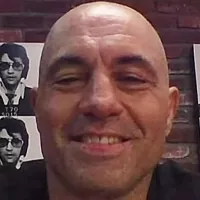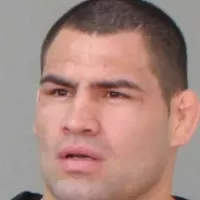Spotify is a Swedish audio streaming and media service founded in 2006 by Daniel Ek and Martin Lorentzon. As of December 2024, it stands as a leading music streaming platform, boasting over 678 million monthly active users, including 268 million paying subscribers. The company is publicly traded on the New York Stock Exchange.
April 2006: Spotify Founded
In April 2006, Spotify was founded by Daniel Ek and Martin Lorentzon in Sweden, marking the beginning of the audio streaming and media service.
2006: Spotify Founded
In 2006, Spotify was founded in Stockholm, Sweden, by Daniel Ek and Martin Lorentzon. The name was a portmanteau of "spot" and "identify".
2006: Criticism begins since Spotify's launch
Since its 2006 launch, Spotify has faced criticism regarding its compensation model, deemed "unsustainable" by artists, music creators, and the media.
2008: Company Financial Loss
In 2008, just after launch, Spotify reported a loss of 31.8 million Swedish kronor (US$4.4 million).
February 2009: Public Registration Opened in the UK
In February 2009, Spotify opened public registration for its free service tier in the United Kingdom. Registration was later halted in September due to a surge following the mobile service release, reverting the UK to an invitation-only policy.
February 2010: Investment from Founders Fund
In February 2010, Spotify received a small investment from Founders Fund, with Sean Parker recruited to assist in engaging music labels.
September 2010: Spotify selected as WEF Technology Pioneer
In September 2010, the World Economic Forum (WEF) selected Spotify as a Technology Pioneer for 2011.
October 2010: Spotify Leads Revenue for Labels in Sweden
In October 2010, Wired reported that Spotify was generating more revenue for labels in Sweden than any other retailer, both online and offline.
March 2011: One Million Paying Subscribers
In March 2011, Spotify announced that it had reached 1 million paying subscribers across Europe.
April 2011: Spotify announces cuts to free member music access
In April 2011, Spotify announced that starting May 1, 2011, free members would be limited to ten hours of music streaming per month and individual tracks were limited to five plays.
May 2011: Limits to free member music access take effect
On May 1, 2011, Spotify's announced changes took effect, limiting free members to ten hours of music streaming per month, with individual tracks limited to five plays. New users were exempt from these changes for six months.
June 2011: Spotify Secures $100 Million Funding
In June 2011, Spotify secured $100 million in funding to support its US launch, valuing the company at $1 billion.
July 2011: Spotify Launched in the United States
In July 2011, Spotify launched in the United States, offering a six-month, ad-supported trial period with unlimited free listening.
September 2011: Two Million Paying Subscribers
By September 2011, Spotify had doubled its number of paying subscribers to two million.
November 2011: Spotify Introduces Spotify Apps Service
In November 2011, Spotify introduced the Spotify Apps service, enabling third-party developers to create applications within the Spotify software.
2011: Reported Net Loss
In 2011, Spotify reported a near US$60 million net loss from revenue of $244 million (equivalent to $326,200,000 in 2023).
2011: Spotify recognized as WEF Technology Pioneer
In 2011, Spotify was recognized as a Technology Pioneer by the World Economic Forum (WEF) following their selection in September 2010.
January 2012: Free Trial Limits Introduced
In January 2012, after the initial launch period, Spotify implemented limits on its free trial, restricting users to ten hours of streaming per month and five plays per song.
April 2012: Spotify Introduces "Spotify Play Button"
In April 2012, Spotify introduced a "Spotify Play Button", an embeddable music player for blogs, websites, and social media profiles.
June 2012: Soundrop Receives Funding
In June 2012, Soundrop became the first Spotify app to attract major funding, receiving $3 million from Spotify investor Northzone.
August 2012: 15 Million Active Users
In August 2012, Spotify reported having 15 million active users, including four million paying subscribers.
November 2012: Goldman Sachs-Led Funding Round
In November 2012, a Goldman Sachs-led funding round raised approximately $100 million for Spotify, valuing the company at $3 billion.
November 2012: Company Momentum
In November 2012, a report indicated strong momentum for Spotify.
December 2012: Spotify Introduces "Follow", "Discover", and "Collection" Tabs
In December 2012, Spotify introduced the "Follow" and "Discover" tabs, along with a "Collection" section. These features were designed to help users find new music and connect with artists and friends.
December 2012: 20 Million Active Users
In December 2012, Spotify reached 20 million total active users, including five million paying customers globally and one million paying customers in the United States.
January 2013: Removal of Music Purchase Service
In January 2013, Spotify discontinued the service that allowed users to purchase music from within the app.
January 2013: Music Downloads Removed
On 4 January 2013, Spotify removed the ability to purchase and download music tracks via the app.
March 2013: 24 Million Active Users
By March 2013, Spotify had 24 million active users, with six million being paying subscribers.
March 2013: Spotify removes play limit in the UK
In March 2013, Spotify removed the five-play individual track limit for users in the United Kingdom.
May 2013: Acquisition of Tunigo
In May 2013, Spotify acquired music discovery app Tunigo.
December 2013: Free users gain Shuffle mode on smartphones
In December 2013, Spotify CEO Daniel Ek announced that free users on Android and iOS smartphones could listen to music in Shuffle mode, allowing streaming of music by specific artists and playlists without choosing individual songs. This was a new feature as mobile listening was previously unavailable on Spotify Free accounts.
December 2013: Spotify Launches "Spotify for Artists" Website
In December 2013, Spotify launched a new website called "Spotify for Artists" to explain its business model and revenue data to artists.
2013: Spotify Reveals Average Per-Stream Payment to Artists
In 2013, Spotify revealed that it paid artists an average of $0.007 per stream.
January 2014: Spotify removes time limits for free users
In January 2014, Spotify removed all time limits for free users on all platforms, including computers, which previously had a 10-hour monthly listening limit after a 6-month grace period.
March 2014: Acquisition of The Echo Nest
In March 2014, Spotify acquired The Echo Nest, a music intelligence company.
March 2014: Discounted Premium Subscription for US Students
In March 2014, Spotify introduced a discounted Premium subscription tier for students in the United States, offering half-price subscriptions to university students.
April 2014: Spotify ends peer-to-peer system
In April 2014, Spotify stopped using the peer-to-peer (P2P) system for music distribution, switching to delivery through its own servers to improve service quality.
May 2014: 40 Million Users
In May 2014, Spotify reached 40 million users, including ten million paying subscribers.
June 2014: Spotify Announces Web API
In June 2014, Spotify announced a Web API, which allowed third-party developers to integrate Spotify content into their own web applications.
October 2014: Spotify Introduces Family Subscription
In October 2014, Spotify introduced a Family subscription, allowing up to 5 family members to have a premium subscription.
December 2014: 60 Million Users
In December 2014, Spotify reached 60 million users, including 15 million paying subscribers.
January 2015: Sony Announces PlayStation Music with Spotify
In January 2015, Sony announced PlayStation Music, a new music service that integrates Spotify into Sony's PlayStation 3 and PlayStation 4 gaming consoles and Sony Xperia mobile devices.
March 2015: PlayStation Music Service Launch
On March 30, 2015, PlayStation Music service, featuring Spotify, was launched on PlayStation 3, PlayStation 4 and Sony Xperia devices.
April 2015: Fundraising Round
In April 2015, Spotify began another fundraising round, seeking $400 million to value the company at $8.4 billion.
May 2015: Spotify Announces New "Home" Page, Running Feature, and Multimedia Content
In May 2015, Spotify announced a new "Home" start-page for music recommendations, "Spotify Running" for tempo-matched music, and the addition of podcasts and videos, including "Spotify Originals".
June 2015: Acquisition of Seed Scientific
In June 2015, Spotify announced the acquisition of Seed Scientific, a data science consulting and analytics firm, to lead an advanced analytics unit within the company.
June 2015: Financing Closed
In June 2015, Spotify closed its financing, raising $526 million and valuing the company at $8.53 billion.
June 2015: 75 Million Users
In June 2015, Spotify reported 75 million users, including 20 million paying subscribers.
July 2015: Spotify Launches Discover Weekly
In July 2015, Spotify launched Discover Weekly, a personalized playlist generated weekly, offering users music recommendations updated on Mondays.
July 2015: Spotify Urges Users to Cancel App Store Subscriptions
In July 2015, Spotify launched an email campaign encouraging its App Store subscribers to cancel and renew their subscriptions through Spotify's website to avoid Apple's 30% in-app purchase fee. Apple rejected a later Spotify app update.
October 2015: "Thinking Out Loud" Reaches 500 Million Streams
In October 2015, "Thinking Out Loud" by Ed Sheeran became the first song to exceed 500 million streams on Spotify.
November 2015: "Fan Insights" Panel Introduced
In November 2015, Spotify introduced a "Fan Insights" panel in limited beta form, providing artists and managers with data on listeners, geography, demographics, music preferences, and more.
December 2015: Discover Weekly Streams Reach 1.7 Billion
In December 2015, Quartz reported that songs in Discover Weekly playlists had been streamed 1.7 billion times.
December 2015: Spotify Debuts Spotify Wrapped
In December 2015, Spotify debuted Spotify Wrapped, a program that creates playlists based on each user's most listened-to songs from the year, which can then be viewed and saved at the end of the year.
January 2016: Acquisition of Cord Project and Soundwave
In January 2016, Spotify acquired social and messaging startups Cord Project and Soundwave.
January 2016: Spotify Partners with Genius for "Behind the Lyrics"
In January 2016, Spotify partnered with Genius to bring annotation information into infocards, presented as "Behind the Lyrics", while songs played in Spotify.
January 2016: Raised Through Convertible Bonds
In January 2016, Spotify raised another $500 million through convertible bonds.
March 2016: Spotify Launches Fresh Finds Playlists
In March 2016, Spotify launched six playlists branded as Fresh Finds, spotlighting songs by lesser-known musicians across different genres.
March 2016: $1 Billion in Financing
In March 2016, Spotify raised $1 billion in financing via debt plus a discount on shares for the IPO.
March 2016: 30 Million Paying Subscribers
In March 2016, Spotify reached 30 million paying subscribers.
April 2016: Open Letter to Swedish Politicians
In April 2016, Daniel Ek and Martin Lorentzon addressed an open letter to Swedish politicians, urging action on housing, education, and stock options to support Spotify's growth and talent recruitment.
April 2016: Rihanna Overtakes Justin Bieber
In April 2016, Rihanna surpassed Justin Bieber to become the most popular artist on Spotify, boasting 31.3 million monthly active listeners.
April 2016: Acquisition of CrowdAlbum
In April 2016, Spotify acquired CrowdAlbum, a startup focused on collecting photos and videos of performances shared on social networks.
May 2016: Drake Overtakes Rihanna
In May 2016, Drake surpassed Rihanna as the most popular artist on Spotify with 31.85 million monthly listeners.
May 2016: Spotify Announces "Sponsored Playlists"
In May 2016, Spotify announced "Sponsored Playlists", a monetisation opportunity for brands to connect with audiences through music.
May 2016: Family Subscription Limit Increased and Price Reduced
In May 2016, Spotify changed the limit of the Family subscription to 6 family members and reduced the price.
June 2016: 100 Million Total Users
In June 2016, Spotify reached a milestone of 100 million total users.
August 2016: Spotify Launches Release Radar
In August 2016, Spotify launched Release Radar, a personalized playlist for users to stay updated on new music released by artists they follow, updated every Friday.
September 2016: 40 Million Paying Subscribers
In September 2016, Spotify reached 40 million paying subscribers.
November 2016: Acquisition of Preact
In November 2016, Spotify acquired Preact, a cloud-based platform designed to reduce churn and build up subscriber numbers for subscription-based companies.
December 2016: The Weeknd Overtakes Drake, "One Dance" Hits 1 Billion Streams
In December 2016, The Weeknd overtook Drake with 36.068 million monthly listeners. Drake's song "One Dance" also became the first song to reach one billion streams on Spotify.
2016: Criticism for allegedly favoring artists on rival service
In 2016, Spotify faced criticism for allegedly making certain artists' music harder to find as these artists would release their music to the rival streaming service Apple Music before releasing it to Spotify.
2016: Spotify migrates to Google Cloud
In 2016, Spotify migrated most of its infrastructure from its own servers to Google Cloud.
2016: Spotify Provides RADAR Artists with Resources
In 2016, Spotify provided artists taking part in RADAR with resources and access to integrated marketing opportunities to help them boost their careers, in addition to expanded reach and exposure to 178 markets worldwide.
February 2017: Spotify Expanded US Operations
In February 2017, Spotify announced it was expanding United States operations in Lower Manhattan, New York City, at 4 World Trade Center, adding approximately 1,000 new jobs.
March 2017: Acquisition of Sonalytic
In March 2017, Spotify acquired Sonalytic, an audio detection startup, aiming to improve personalized playlists and song matching.
March 2017: Spotify Partners with SXSW and WNYC Studios
In March 2017, Spotify announced a partnership with the South by Southwest (SXSW) conference to present content via playlists and integrated with the SXSW GO app. Additionally, partnerships with WNYC Studios were announced, bringing podcasts like Note to Self, On the Media, and Here's the Thing to Spotify, and allowing exclusive access to 2 Dope Queens podcast for two weeks.
March 2017: Negotiations with Music Labels to Restrict Album Releases
In March 2017, The Financial Times reported that Spotify was in negotiations with music labels to restrict some newly released albums to its Premium tier in exchange for reduced royalty fees, allowing select albums to be premium-only for a period before general release.
April 2017: Acquisition of Mediachain
In April 2017, Spotify acquired Mediachain, a blockchain startup developing a decentralized database system for managing media metadata.
April 2017: Premium Subscription Discount Expanded
In April 2017, Spotify expanded its Premium subscription discount for students to 33 more countries.
April 2017: "Behind the Lyrics" Expands to Android
In April 2017, the "Behind the Lyrics" feature expanded to the Android app.
April 2017: "Spotify for Artists" Launched
In April 2017, the "Fan Insights" panel was upgraded to leave beta status, renamed as "Spotify for Artists", and opened to all artists and managers with additional features.
May 2017: Acquisition of Niland
In May 2017, Spotify acquired Niland, an artificial intelligence startup focused on enhancing personalization and recommendation features.
May 2017: Spotify Introduces Spotify Codes
In May 2017, Spotify introduced Spotify Codes for its mobile apps, allowing users to share specific artists, tracks, playlists, or albums with other people by scanning a soundwave-style barcode.
June 2017: Announcement of "Secret Genius" Initiative
In June 2017, Spotify announced "Secret Genius", an initiative to highlight songwriters and producers.
June 2017: Spotify Available on Windows Store
In June 2017, Spotify became available as an app through the Windows Store.
June 2017: Spotify Financial Agreements Revealed
In June 2017, Spotify's financial filings revealed its agreement to pay over $2 billion (equivalent to $2,445,000,000 in 2023) in minimum payments over the next two years, as part of renegotiated licenses.
August 2017: "Look What You Made Me Do" Breaks Streaming Record
In August 2017, Taylor Swift's single "Look What You Made Me Do" earned over eight million streams within 24 hours upon its release, setting a new record for the most single-day streams for a track on Spotify.
October 2017: Microsoft to End Groove Music, Transfers Users to Spotify
In October 2017, Microsoft announced that it would be ending its Groove Music streaming service by December, with all music from users transferring to Spotify as part of a new partnership.
October 2017: Spotify Launches "Rise" Program
In October 2017, Spotify launched the "Rise" program, which aimed to promote emerging artists.
November 2017: Acquisition of Soundtrap
In November 2017, Spotify acquired Soundtrap, an online music studio startup.
2017: Spotify's Alleged Perfect Content Fit Program Start
According to a report from Harper's Magazine published in December 2024, Spotify's alleged Perfect Content Fit (PFC) program started in 2017.
2017: Company Financial Status
As of 2017, Spotify was not yet a profitable company.
2017: Spotify Introduced RapCaviar
In 2017, Spotify introduced RapCaviar, a hip-hop playlist curated by Tuma Basa.
2017: Catalogues return to Spotify
In 2017, catalogues of artists such as Taylor Swift and Thom Yorke, who criticized Spotify for unfair compensation, returned to the service.
2017: Planned Stock Market Launch
In 2017, the company was planning to launch on the stock market.
January 2018: Spotify Tests "Stations by Spotify" App
On 31 January 2018, Spotify began testing a new standalone app called "Stations by Spotify" for Australian Android users. The app featured 62 music channels, each devoted to a particular genre.
February 2018: Spotify Integrates with Discord
In February 2018, Spotify integrated with the gaming-oriented voice chat service Discord, allowing users to display their currently playing song and invite others with Spotify Premium to group listening parties.
April 2018: Spotify allows on-demand listening for free users
In April 2018, Spotify began allowing free users to listen on-demand to any song on their personalized discovery playlists an unlimited number of times.
April 2018: Spotify Goes Public
In April 2018, Spotify went public on the stock market using a direct public offering, with Morgan Stanley as the slated advisor.
April 2018: Acquisition of Loudr
On April 12, 2018, Spotify acquired the music licensing platform Loudr.
April 2018: Spotify Opens on the New York Stock Exchange
On April 3, 2018, Spotify made its debut on the New York Stock Exchange, opening at $165.90, which was more than 25% above its reference price of $132.
May 2018: Spotify's "Hate Content & Hateful Conduct policy"
In May 2018, Spotify faced criticism for its "Hate Content & Hateful Conduct policy," which led to the removal of R. Kelly and XXXTentacion's music from editorial and algorithmic playlists due to their alleged off-platform conduct. This policy aimed to disassociate Spotify from artists whose actions conflicted with the company's values.
June 2018: "Sad!" Breaks Single-Day Streaming Record
On June 19, 2018, XXXTentacion's single "Sad!" broke Taylor Swift's single-day streaming record with 10.4 million streams the day after his death.
August 2018: Acquisition of "The Joe Budden Podcast" Rights
In August 2018, Spotify bought the exclusive rights to "The Joe Budden Podcast".
September 2018: "Upload Beta" Launched
In September 2018, Spotify announced "Upload Beta", allowing artists to upload directly to the platform, initially for a small number of US-based artists.
November 2018: Spotify Connect Opened to Free Users
In November 2018, Spotify announced it was opening up Spotify Connect to all users on its Free service.
November 2018: Spotify Releases Apple Watch App
In November 2018, Spotify released the first version of its Apple Watch app, allowing playback control of the iPhone via the watch and Bluetooth device selection.
![Apple Watch Series 10 [GPS 46mm case] Smartwatch with Jet Black Aluminium Case with Black Sport Band - M/L. Fitness Tracker, ECG App, Always-On Retina Display, Water Resistant Apple Watch Series 10 [GPS 46mm case] Smartwatch with Jet Black Aluminium Case with Black Sport Band - M/L. Fitness Tracker, ECG App, Always-On Retina Display, Water Resistant](https://m.media-amazon.com/images/I/31Cud2WnszL._SL500_.jpg)
November 2018: Expansion into the MENA Region
On November 14, 2018, Spotify announced expansion into 13 new markets in the MENA (Middle East and North Africa) region, including the creation of a new Arabic hub.
2018: Delayed Stock Market Launch
In 2017, the company was planning to launch on the stock market, but in 2018 it was seen as planning on doing the IPO.
January 2019: Spotify Introduces Car View and Tests Canvas Feature
In January 2019, Spotify introduced Car View for Android and beta-tested its Canvas feature, where artists can upload looping visuals to their tracks.
February 2019: Gimlet Media staff seek union recognition
In February 2019, one month after Spotify acquired Gimlet Media, 75% of Gimlet Media's staff went public by signing union cards and seeking voluntary recognition.
February 2019: Acquisition of Gimlet Media and Anchor FM Inc.
On February 6, 2019, Spotify acquired the podcast networks Gimlet Media and Anchor FM Inc., aiming to become a leading figure in podcasting.
March 2019: Spotify Acquires Parcast
In March 2019, Spotify acquired Parcast, further expanding its podcasting portfolio.
March 2019: Spotify Files Antitrust Complaint Against Apple
On March 13, 2019, Spotify filed an antitrust complaint with the European Commission over unfair app store practices. Two days later, Apple responded.
March 2019: Acquisition of Parcast
On March 26, 2019, Spotify announced its plan to acquire another podcast network, Parcast.
May 2019: Spotify announces Car Thing
In May 2019, Spotify announced the 'Car Thing,' its first hardware device, which is a voice-activated music-streaming gadget for cars.
June 2019: Spotify Launches "Your Daily Drive" Playlist
In June 2019, Spotify launched the "Your Daily Drive" playlist, which replicates the drive time format of traditional radio stations, combining podcast news updates with a mix of a user's favorite songs and new discoveries.
June 2019: Stations by Spotify Available in the US
In June 2019, the Stations by Spotify app was made available to all iOS and Android users in the United States.
July 2019: Direct Uploads Deprecated
On 1 July 2019, Spotify deprecated the Upload Beta program and announced plans to stop accepting direct uploads.
September 2019: Acquisition of SoundBetter
On September 12, 2019, Spotify acquired SoundBetter, a marketplace for music production collaboration and music licensing.
November 2019: Acquisition of "The Last Podcast on the Left" Rights
On November 19, 2019, Spotify announced the acquisition of the exclusive rights to "The Last Podcast on the Left."
2019: RapCaviar had 10.9 million followers by 2019
By 2019, RapCaviar had 10.9 million followers, becoming one of Spotify's Top 5 playlists. It was relaunched by Carl Chery.
2019: Siri Integration
In 2019, under iOS 13, it became possible to play Spotify music using Siri commands.
February 2020: Spotify Acquires The Ringer
In February 2020, Spotify announced its acquisition of The Ringer, thereby inheriting the previously established union.
February 2020: Spotify Announces New Songwriter Pages and Playlists
In February 2020, Spotify announced the addition of songwriter pages and 'written by' playlists, which aimed to give fans a behind-the-scenes look at the work of songwriters. The initial songwriter pages included Justin Trantor, Meghan Trainor, and Missy Elliott.
April 2020: 133 Million Premium Users
In April 2020, Spotify reached 133 million premium users.
May 2020: Spotify Introduces Group Session Feature
In May 2020, Spotify introduced the Group Session feature, allowing Premium users in the same location to share control over the music being played, which was later expanded to include any Premium user with a shared link.
May 2020: Spotify Curates Podcasts with ESPN and Netflix
In May 2020, Spotify partnered with ESPN and Netflix to curate podcasts around their Michael Jordan documentary The Last Dance.
May 2020: Acquisition of Exclusive Rights to "The Joe Rogan Experience"
On May 19, 2020, Spotify acquired exclusive rights to stream "The Joe Rogan Experience" starting in September, under an agreement valued at around US$100 million.
May 2020: Spotify removes library song limit
Prior to May 2020, Spotify limited all users to 10,000 songs in their library. After reaching this limit, users received an "Epic collection, friend" notification and could not save more music. Spotify later removed this limit.
July 2020: Spotify Adds Premium Duo Tier
In July 2020, Spotify introduced another tier called Premium Duo, aimed at couples allowing up to two people at the same address to share a subscription.
July 2020: Data Breach Exposes User Credentials
On July 3, 2020, VPNMentor discovered a database containing 380 million individual records, including Spotify user logins and passwords, potentially indicating an impending credential stuffing cyberattack.
September 2020: Spotify Joins Coalition for App Fairness
In September 2020, Spotify, Epic Games, and other companies founded The Coalition for App Fairness, aiming for better conditions for app inclusion in app stores.
November 2020: Spotify to Acquire Megaphone
In November 2020, Spotify announced its plans to acquire Megaphone from The Slate Group for $235 million.
November 2020: Password Reset for Affected Accounts
In November 2020, following the discovery of a major data breach in July, Spotify initiated a rolling reset of passwords for affected accounts.
2020: Spotify and DC Create Audio Shows
In 2020, Spotify and DC (Warner Bros. Entertainment) signed deals to create audio shows based on characters like Catwoman and Wonder Woman.
2020: Spotify Partners with Wizarding World for 'Harry Potter' Readings
In 2020, Spotify partnered with Wizarding World to release a series of recorded readings of 'Harry Potter and the Philosopher's Stone', by various stars of the franchise.

2020: Spotify's Revenue and Losses in Q1 and Q2
In 2020, Spotify reported a revenue of €1.85 billion ($2 billion) in Q1, largely from Premium subscribers, and a loss of €356 million in Q2 due to tax debt.
2020: Artist Earnings on Spotify
In 2020, approximately 13,000 out of seven million artists (0.19%) on Spotify generated $50,000 (equivalent to $58,000 in 2023) or more in payments.
2020: Car Thing filings to FCC
In early 2020, as part of filings to the Federal Communications Commission (FCC), Spotify submitted images of the Car Thing device that make it seem much more like a miniature infotainment screen.
2020: United Musicians and Allied Workers Established
The United Musicians and Allied Workers (UMAW) was established in 2020 during the onset of the Corona pandemic.
January 2021: Spotify Adds Audiobooks
In January 2021, Spotify began testing the addition of audiobooks to the platform to broaden the content available to users, creating similar offerings to Amazon's Audible.
February 2021: Spotify Announces HiFi Subscription Plans
In February 2021, Spotify announced plans to introduce a HiFi subscription, offering listening in high fidelity, lossless sound quality.
March 2021: Monopolies in streaming services
In March 2021, David Dayen argued that musicians faced peril due to monopolies in streaming services like Spotify. Daniel Ek, CEO of Spotify, discussed an "artist-friendly streaming solution", licensing content from record labels and supporting artists as people listened to their music.
March 2021: Spotify Acquires Betty Labs
In March 2021, Spotify acquired Betty Labs, the app developer behind the live social audio app Locker Room.
March 2021: Spotify Announces Upcoming Hi-Fi Option
In March 2021, Spotify announced an upcoming option for higher-resolution sound, called Spotify Hi-Fi.
March 2021: UnionOfMusicians protests for #JusticeAtSpotify
In March 2021, the UnionOfMusicians (UMAW) organized protests in 31 cities as part of its #JusticeAtSpotify campaign, demanding more transparency and a compensation of one cent per stream.
March 2021: Spotify and Kakao Entertainment Dispute Resolved
On March 1, 2021, Spotify confirmed that its platform would no longer have access to music from artists represented by Kakao Entertainment. However, after renewing contracts, Spotify announced it reached an agreement with Kakao Entertainment, allowing their content to be available once again.
April 2021: Spotify rolls out its own voice assistant
In April 2021, Spotify launched its own voice assistant with the wake word "Hey Spotify," allowing users to control playlists, radio stations, and playback hands-free.
April 2021: Gimlet Media and Ringer ratify first collective agreement
In April 2021, writers and producers ratified their first collective agreement with Gimlet Media and Ringer, setting minimum salaries and lasting for three years.
May 2021: Armchair Expert Exclusive to Spotify
In May 2021, Armchair Expert announced on Instagram that the podcast would be available exclusively on Spotify beginning July 1, 2021, while maintaining creative control.
June 2021: Locker Room Rebranded as Spotify Greenroom
In June 2021, Locker Room was rebranded as Spotify Greenroom, becoming a competitor to Clubhouse. The same month, Spotify acquired Podz, a podcast discovery startup, and bought exclusive rights to the Call Her Daddy podcast.
July 2021: Spotify Launches "What's New" Feed
In July 2021, Spotify launched the "What's New" feed, a section that collects new releases and episodes from artists and podcasts that the user follows, available on iOS and Android.
August 2021: Spotify Launches Test Subscription Tier: Spotify Plus
In August 2021, Spotify launched a test subscription tier called Spotify Plus for $0.99, combining free and premium features.
November 2021: Spotify Acquires Findaway
In November 2021, Spotify acquired the audiobook company Findaway, including its publishing imprint OrangeSky Audio.
November 2021: Spotify Hides Shuffle Button for Albums
In November 2021, Spotify hid the shuffle button for albums following a request by singer Adele, arguing that album tracks should be played in the artist's specified order.
November 2021: Spotify Launches City and Local Pulse Charts
In November 2021, Spotify launched the City and Local Pulse charts, aimed at representing the songs listened to in major cities around the world, available for 200 cities with the most listeners on Spotify.
November 2021: "Behind the Lyrics" Replaced with Real-Time Lyrics
As of November 2021, due to consumer demand, Spotify's "Behind the Lyrics" feature was replaced with auto-generated real-time lyrics, powered by Musixmatch and PetitLyrics.
December 2021: Spotify Acquires Whooshkaa
In December 2021, Spotify acquired Whooshkaa, a podcast tech company specializing in converting radio content into on-demand podcasts.
2021: Spotify fills playlists with stock music
Around 2021, Spotify began filling playlists in some genres with stock music, attributed to lesser-known musicians, in an effort to reduce royalty payouts.
2021: Spotify and DC Create More Audio Shows
In 2021, Spotify and DC (Warner Bros. Entertainment) continued to create audio shows based on characters such as the Riddler, Batgirl, Superman and Lois Lane, among others.
January 2022: Spotify faces criticism over Joe Rogan podcast
In January 2022, Spotify was criticized after 270 scientists and healthcare workers wrote an open letter expressing concern over COVID-19 misinformation on Joe Rogan's podcast, The Joe Rogan Experience. Neil Young and other artists boycotted Spotify, leading the platform to promise content advisories for COVID-19 related discussions.
February 2022: Spotify Acquires Chartable and Podsights
In February 2022, Spotify acquired Chartable and Podsights, both podcast advertising companies.
March 2022: 182 Million Premium Subscribers
In March 2022, Spotify had 182 million premium subscribers.
May 2022: Spotify to Shut Down Stations App
In May 2022, Spotify announced that the Stations app would be shut down on May 16, 2022, with users being able to transfer their stations into the main Spotify app.
May 2022: Spotify Tests NFT Integration
In May 2022, Spotify began testing a feature allowing select artists to promote their NFTs via their profiles on the Android app in the US. Featured artists included Steve Aoki and The Wombats.
May 2022: Spotify Partners with Roblox, Launches Spotify Island
In May 2022, Spotify partnered with Roblox and launched "Spotify Island" within the game, making Spotify the first streaming brand to have a presence in Roblox.
June 2022: Spotify Acquires Sonantic
In June 2022, Spotify acquired Sonantic, a synthetic voice and video developer.
July 2022: Spotify Acquires Heardle
In July 2022, Spotify acquired Heardle, a Wordle-inspired music trivia game.
August 2022: Spotify Subscription Tiers
As of August 2022, there were two Spotify subscription tiers available.
October 2022: Spotify Acquires Kinzen
In October 2022, Spotify acquired Kinzen, a Dublin-based content moderation startup.
November 2022: Spotify Engineer Creates Collective Agreement Channel
In November 2022, Henry Catalini Smith, a Spotify engineer in Malmö, set up the channel #kollektivavtal (collective agreement) in the internal company Slack. The channel grew to 2,000 participants.
December 2022: Spotify availability in 184 markets
As of December 2022, Spotify is available in 184 markets across Europe, Africa, the Americas, Asia, and Oceania, with podcasting services not available in some of those markets.
2022: Spotify closes Russia office and suspends services
Following the Russian invasion of Ukraine, Spotify temporarily closed its office in Russia and indefinitely suspended all of its services in the country in 2022.
2022: Spotify Becomes Official Streaming Partner of FC Barcelona
In 2022, Spotify became the official streaming partner of FC Barcelona.
2022: Investigation reveals Spotify's royalty payout strategy
In 2022, an investigation revealed that Spotify was using a small group of songwriters behind hundreds of "artists" to populate playlists with their tracks, streamed millions of times.
February 2023: Spotify Berlin Employees Establish Electoral Board
In February 2023, Spotify GmbH employees in Berlin established an electoral board to prepare the election for the works council in April.
March 2023: Spotify Partners with Patreon
In March 2023, Spotify announced a partnership with Patreon to enable creators to receive direct payments from fans and allow fans to listen to Patreon content on Spotify.
March 2023: Spotify Rolls Out Discovery Mode for Independent Artists
In March 2023, Spotify rolled out "Discovery Mode", a tool for independent artists who meet certain criteria and have a Spotify For Artists account to submit qualifying songs for Spotify's in-house promotion services.
April 2023: Spotify Greenroom Rebrands as Spotify Live, then Shut Down
In 2022, Spotify Greenroom rebranded as Spotify Live, which was subsequently planned to be shut down in April 2023.
May 2023: Heardle Shutdown
Heardle, which Spotify acquired in July 2022, was shut down in May 2023.
May 2023: Spotify Removes Tracks Due to Artificial Streaming
In May 2023, Spotify removed approximately 7% of the tracks uploaded by Boomy, totaling tens of thousands of songs, due to suspected "artificial streaming" (using bots to inflate listening statistics).
August 2023: Spotify Ends Joint Negotiations with Trade Unions in Sweden
In August 2023, Spotify AB ended joint-negotiations with the three trade unions Unionen and Engineers of Sweden (affiliate of SACO). The three unions petitioned Spotify to negotiate back in May.
September 2023: Spotify Introduces Daylist Playlist
In September 2023, Spotify introduced its latest playlist update 'Daylist', a new kind of playlist which adapts to the user's mood throughout the day.
November 2023: Spotify Announces New Royalty Model
In November 2023, Spotify announced a new royalty model to reduce fraudulent royalties, requiring tracks to reach 1,000 listens in 12 months to be eligible for royalties.
November 2023: Spotify Expands Free Audiobook Access
In November 2023, Spotify expanded free access to 200,000 audiobooks for Spotify Premium subscribers.
December 2023: Spotify's Website Traffic
As of December 2023, Spotify was the 47th most-visited website globally, with 24.78% of its traffic originating from the United States, followed by 6.51% from Brazil.
2023: Adjusted Revenue Data
In 2011, Spotify reported a near US$60 million net loss from revenue of $244 million (equivalent to $326,200,000 in 2023).
2023: Adjusted artist earnings on Spotify
In 2020, approximately 13,000 out of seven million artists (0.19%) on Spotify generated $50,000 (equivalent to $58,000 in 2023) or more in payments.
2023: Spotify announces leaving Uruguay
In 2023, Spotify announced that it would leave Uruguay due to a copyright law, but reversed its decision a few weeks later.
2023: Soundrop funding reported in 2023 dollars
In 2023, the $3 million funding that Soundrop received in 2012 was reported as being equivalent to $3,937,000 in 2023.
2023: Value of The Joe Rogan Experience
In 2023, the deal for "The Joe Rogan Experience" was equivalent to $116,000,000.
2023: Minimum Payments
In June 2017, Spotify's financial filings revealed its agreement to pay over $2 billion (equivalent to $2,445,000,000 in 2023) in minimum payments over the next two years, as part of renegotiated licenses.
March 2024: Writers Guild of America, East ratifies collective agreement with Ringer and Spotify Studios
In March 2024, The Writers Guild of America, East ratified a collective agreement with Ringer and Spotify Studios (Spotify Studios was formed as a merger of Gimlet Media, Parcast and their respective unions).
April 2024: Spotify Expands Audiobook Access to Additional Regions
In April 2024, Spotify expanded access to audiobooks from the US, UK, and Australia to include Canada, Ireland, and New Zealand. The company also announced an expansion of its book catalog to 250,000 books.
May 2024: Spotify announces Car Thing end of service
In May 2024 Spotify sent out announcements to Car Thing owners, stating that the hardware would fully stop working on 9 December 2024.
November 2024: Spotify for Podcasters Rebranded to Spotify for Creators
In November 2024, Spotify for Podcasters was rebranded to Spotify for Creators as a move to organize its content creation tools in one place.
December 2024: Spotify Accused of Using Ghost Artists
In December 2024, a report in Harper’s Magazine alleged that Spotify was padding out playlists with ghost artists created by production companies, with the practice allegedly starting in 2017 with a program called Perfect Content Fit (PFC).
December 2024: Car Thing stops working
On December 9, 2024, the Spotify Car Thing hardware will fully stop working.
December 2024: 678 Million Monthly Active Users
As of December 2024, Spotify had grown to be one of the largest music streaming services with over 678 million monthly active users, including 268 million paying subscribers.
2024: Spotify modifies API ahead of Wrapped 2024
Ahead of Spotify Wrapped 2024, Spotify changed its API so that modded versions of the client will not work.
2024: Spotify adds audiobooks to premium tier
In 2024, Spotify added 15 hours of audiobook listening to its premium tier, leading to adjustments in royalty rates for songwriters.
2024: 252 million subscribers
In 2024, Spotify reported 252 million subscribers and 640 million monthly active users.
2024: New Royalty Model Taking Effect
In 2024, Spotify's new royalty model takes effect, aiming to reduce fraudulent royalties and impacting payment eligibility for tracks.
2024: Swedish Labor Disputes at Tesla and Klarna
In 2024, Swedish labor disputes are happening at Tesla and Klarna.
2024: Spotify Reports First Profitable Year
Spotify reported its first profitable year in fiscal 2024.
2025: Spotify's partnerships with production companies revealed
In the 2025 book Mood Machine: The Rise of Spotify and the Costs of the Perfect Playlist, it was revealed that Spotify partners with production companies, relinquishing control over some royalty payments in order to benefit financially from Perfect Fit Content (PFC) tracks seeded across the platform, effectively reducing plays for other musicians.
Mentioned in this timeline

Joe Rogan is an American podcaster comedian and UFC color...

XXXTentacion born Jahseh Dwayne Ricardo Onfroy was a controversial yet...

Michael Jordan often known as MJ is a businessman and...

Taylor Swift is a highly influential American singer-songwriter celebrated for...
PlayStation is a video game brand by Sony Interactive Entertainment...

Robyn Rihanna Fenty is a highly successful Barbadian singer actress...
Trending

1 hour ago USA Women's Hockey Olympic Win Over Italy Marred by Heated Play and Officiating

1 hour ago Cain Velasquez Granted Early Parole, Announces Mental Reset Seminar Plans Post-Release.

1 hour ago Miles Teller stars in Apple TV's 'Eternity': Ending, review, and similar rom-coms.

2 hours ago The Highwomen Return: Carlile, Crow, Judd, and Spencer Reunite for Canyon Performances.

2 hours ago Raphael Veiga's game impresses fans; Adapts to Mexico after leaving Palmeiras.
2 hours ago Jalen Williams Injury Scare: Thunder Re-evaluating Hamstring After All-Star Break
Popular

Kid Rock born Robert James Ritchie is an American musician...

Pam Bondi is an American attorney lobbyist and politician currently...
Randall Adam Fine is an American politician a Republican who...

Barack Obama the th U S President - was the...
The Winter Olympic Games a major international multi-sport event held...

XXXTentacion born Jahseh Dwayne Ricardo Onfroy was a controversial yet...

